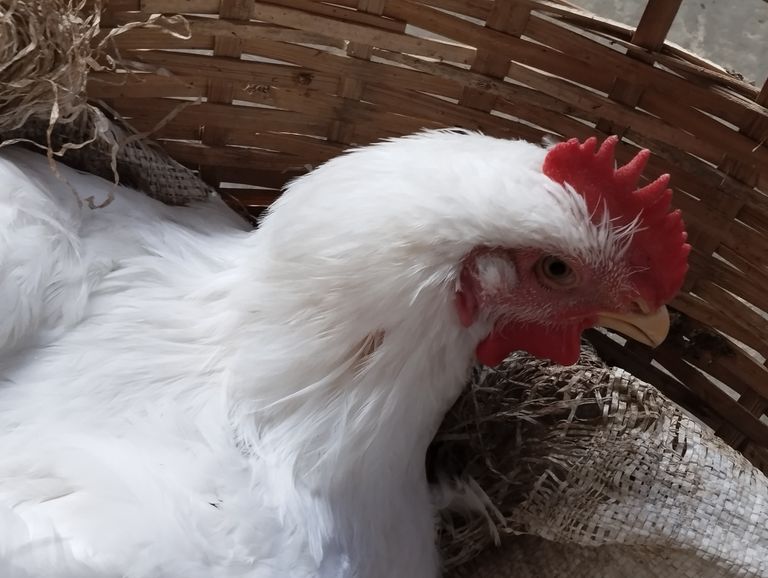
Broiler Chicken Farming A Comprehensive Guide.
Broiler chicken farming is a highly profitable business in the poultry industry. These chickens are specifically bred for meat production, with a rapid growth rate that allows them to be market-ready within a few weeks. If you're considering starting a broiler chicken farm, this blog will guide you through the essentials of raising healthy, productive birds.
- Understanding Broiler Chickens
Broiler chickens are selectively bred for meat production. Unlike layer chickens, broilers are not used for egg production. They are ready for the market within 35–42 days, depending on their breed and management practices. Some popular broiler breeds include Cobb 500, Ross 308, and Hubbard.
- Benefits of Broiler Farming
Quick Returns: Broilers grow fast and can be sold within a short period.
High Demand: Chicken meat is one of the most consumed proteins worldwide.
Scalable: You can start small and expand as your business grows.
Profitability: Proper management ensures high profit margins.
- Setting Up a Broiler Farm
A. Selecting a Location
Choose a well-ventilated, spacious area away from residential zones.
Ensure access to clean water and reliable electricity.
B. Housing Requirements
Broiler housing should provide enough space, ventilation, and protection from predators. Key considerations include:
Space: Allocate 1–1.5 square feet per bird.
Flooring: Use dry litter (e.g., sawdust) to maintain cleanliness.
Ventilation: Ensure proper airflow to prevent respiratory issues.
Temperature Control: Maintain 32–35°C during the brooding stage (first two weeks).
C. Equipment Needed
Feeders and Drinkers: Ensure uniform distribution of feed and water.
Brooders: Provide heat during the brooding period.
Lighting: Use artificial lighting to maintain optimal growth rates.
- Procuring Chicks
Purchase day-old chicks from reputable hatcheries. Ensure they are healthy, active, and vaccinated against common diseases.
- Feeding and Nutrition
Proper nutrition is critical for rapid growth. Broilers are typically fed in three stages:
- Starter Feed: High protein content for the first 10–14 days.
- Grower Feed: Balanced nutrients for the next 14–20 days.
- Finisher Feed: Ensures maximum weight gain in the last 7–14 days.
Always provide clean water and avoid overfeeding to prevent waste.
- Health Management
Vaccination: Protect chicks from diseases like Newcastle and Gumboro.
Biosecurity: Limit visitors to the farm and disinfect regularly.
Observation: Monitor birds for signs of illness, such as lethargy or reduced feed intake.
Veterinary Support: Consult a vet for regular health checks and disease management.
- Marketing and Sales
Once your broilers are market-ready, identify buyers such as:
Local markets and restaurants.
Meat processing companies.
Direct consumers through farm-to-table models.
Consider building relationships with regular buyers to ensure consistent sales.
- Challenges in Broiler Farming
Disease Outbreaks: Can cause significant losses if not managed properly.
Feed Costs: Rising feed prices can affect profitability.
Market Fluctuations: Prices may vary depending on supply and demand.
- Tips for Success
Start small and expand gradually.
Maintain high hygiene standards on your farm.
Keep detailed records of expenses, feed usage, and sales.
Stay updated on market trends and innovations in broiler farming.
- Conclusion
Broiler chicken farming is a rewarding venture for those who are dedicated to proper management and care. With growing global demand for chicken meat, there is immense potential for profit. By following the guidelines outlined in this blog, you can raise healthy broilers and establish a successful farming business.
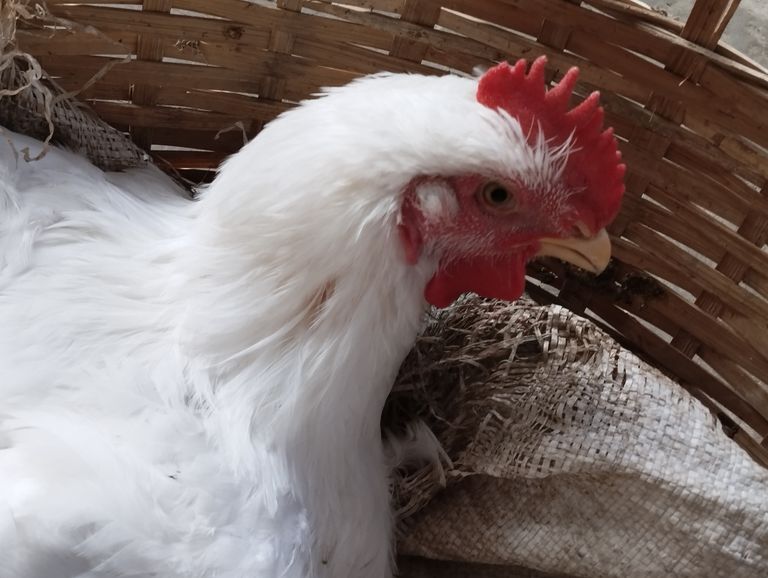
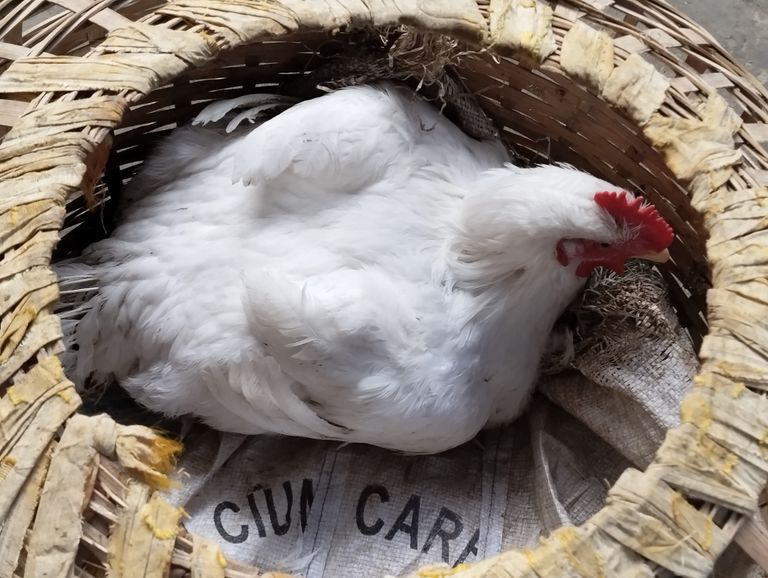
Benefits of Eating Broiler Chicken Meat
Broiler chicken meat is one of the most popular sources of protein worldwide. Known for its affordability, availability, and versatility, broiler chicken is a staple in many diets. While there are various debates surrounding its consumption, the health benefits of broiler chicken meat cannot be overlooked. Here is an in-depth look at the benefits of including broiler chicken in your diet.
- Rich Source of Protein
Broiler chicken meat is an excellent source of high-quality protein, which is essential for building and repairing tissues. Protein also supports muscle growth, enhances strength, and provides the energy needed for daily activities. A 100-gram serving of cooked broiler chicken can provide around 27 grams of protein, making it ideal for athletes, bodybuilders, and anyone seeking a protein-rich diet.
- Supports Weight Management
Broiler chicken is low in fat, especially when consumed without the skin. Its high protein content helps you feel full for longer, reducing the likelihood of overeating. This makes it a great addition to a weight-loss or calorie-controlled diet.
- Boosts Immunity
Chicken contains essential vitamins and minerals like vitamin B6, which supports the immune system by aiding in the production of antibodies. It also has zinc and selenium, which are crucial for maintaining a healthy immune response.
- Promotes Bone Health
Broiler chicken is a good source of phosphorus and calcium, which are vital for maintaining strong bones and teeth. Regular consumption can help prevent bone-related issues such as osteoporosis.
- Enhances Heart Health
When consumed in moderation and prepared using healthy cooking methods, broiler chicken can support heart health. Its low-fat content and high levels of niacin (vitamin B3) help regulate cholesterol levels, reducing the risk of cardiovascular diseases.
- Improves Brain Function
Broiler chicken is rich in choline, a nutrient that plays a key role in brain development and function. It also contains B vitamins that help reduce stress, improve mood, and enhance cognitive abilities.
- Affordable and Versatile
Broiler chicken is one of the most affordable sources of animal protein, making it accessible to people from various economic backgrounds. Its versatility in cooking allows for a wide variety of dishes, ranging from soups and salads to curries and grilled preparations.
- Quick and Easy to Cook
Broiler chicken cooks faster than other meats like beef or mutton, making it a convenient choice for busy lifestyles. This ease of preparation encourages more people to opt for homemade meals, promoting healthier eating habits.
- Rich in Essential Nutrients
Apart from protein, broiler chicken provides several essential nutrients, including:
Iron: Supports the production of red blood cells.
Potassium: Helps maintain fluid balance and regulate blood pressure.
Magnesium: Crucial for muscle and nerve function.
- Low Allergenicity
Unlike some other protein sources like seafood or nuts, broiler chicken is less likely to cause allergic reactions, making it suitable for most individuals.
- Supports Muscle Recovery
The amino acids in broiler chicken aid in muscle repair and recovery, especially after intense physical activity. This makes it a favorite among fitness enthusiasts.
Things to Keep in Mind
While broiler chicken offers numerous health benefits, it’s essential to consume it in moderation and ensure it is sourced and prepared properly. Here are some tips:
Opt for organic or antibiotic-free broiler chicken to avoid potential health risks.
Avoid deep-fried or heavily processed chicken dishes to retain its nutritional value.
Pair broiler chicken with vegetables and whole grains for a balanced meal.
Broiler chicken is a nutritious, affordable, and versatile food that provides a range of health benefits. When included as part of a balanced diet, it can support weight management, muscle growth, heart health, and more. By preparing it in healthy ways and consuming it responsibly, you can enjoy the benefits of broiler chicken while maintaining a nutritious and delicious diet.
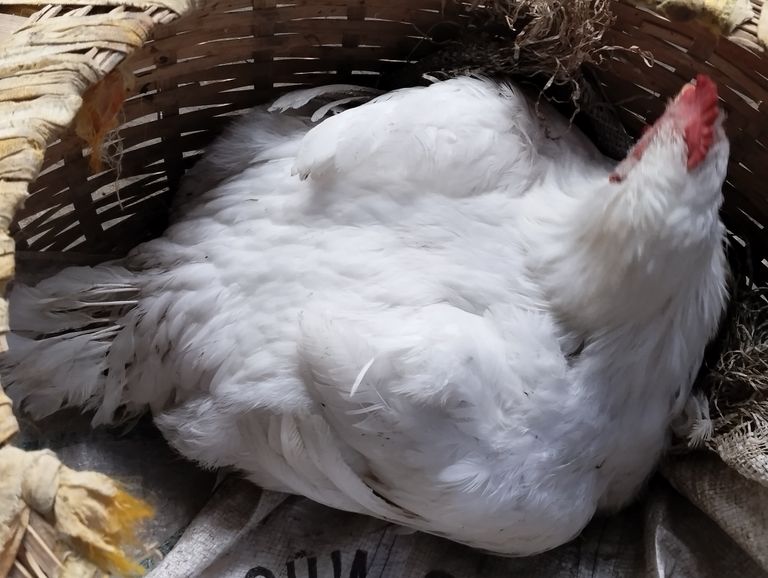
Understanding Common Diseases and Health Issues in Broiler Chickens
Broiler chickens are a cornerstone of the poultry industry, known for their rapid growth and ability to provide high-quality meat in a short period. However, these birds are prone to various diseases and health issues that can impact their growth, productivity, and overall health. Proper management, disease prevention, and early diagnosis are crucial for maintaining the health of broiler chickens. This blog explores the most common diseases affecting broiler chickens, their symptoms, causes, and preventive measures.
- Common Diseases in Broiler Chickens
a. Newcastle Disease (ND)
Symptoms:
Respiratory distress such as coughing and sneezing
Neurological symptoms like tremors and paralysis
Reduced egg production in breeders
Sudden death in severe cases
Causes:
Viral infection caused by avian paramyxovirus
Spread through contaminated feed, water, and equipment
Prevention:
Vaccination
Strict biosecurity measures
b. Infectious Bursal Disease (IBD or Gumboro Disease)
Symptoms:
Swollen bursa
Ruffled feathers and dehydration
Immunosuppression leading to secondary infections
Causes:
Viral infection targeting young birds
Spread through contaminated feed and litter
Prevention:
Vaccination
Proper sanitation practices
c. Coccidiosis
Symptoms:
Diarrhea, often bloody
Loss of appetite and poor weight gain
Lethargy and pale combs
Causes:
Protozoan parasites (Eimeria species) in the intestinal tract
Poor litter management
Prevention:
Use of anticoccidial drugs or vaccines
Frequent cleaning and drying of litter
d. Salmonellosis
Symptoms:
Diarrhea and dehydration
Reduced growth rate
Mortality in severe cases
Causes:
Bacterial infection caused by Salmonella species
Contaminated feed, water, or environment
Prevention:
Maintain hygiene and clean water supply
Test and monitor flocks for infection
e. Avian Influenza (Bird Flu)
Symptoms:
Sudden death in acute cases
Respiratory issues such as coughing and nasal discharge
Reduced feed intake
Causes:
Viral infection caused by avian influenza virus
Spread through wild birds, contaminated equipment, and workers
Prevention:
Vaccination (where applicable)
Strengthening biosecurity measures
- Nutritional Deficiencies
Poor nutrition is another major cause of health issues in broiler chickens. Common deficiencies include:
Vitamin A Deficiency: Leads to poor vision, reduced growth, and respiratory issues.
Calcium Deficiency: Causes weak bones and poor eggshell quality in breeders.
Protein Deficiency: Results in stunted growth and poor feather development.
Preventive Measures:
Provide a balanced and species-specific feed.
Regularly assess feed quality and nutrient levels.
- Management-Related Issues
a. Overcrowding
Leads to stress, increased aggression, and rapid disease transmission.
b. Poor Ventilation
Causes respiratory problems and increases ammonia levels in poultry houses.
c. Wet Litter
Promotes the growth of harmful bacteria and parasites like E. coli and coccidia.
Effective Prevention and Control Measures
Vaccination Programs:
Follow a vaccination schedule tailored to your region and flock's needs.
- Biosecurity Practices:
Limit farm access to authorized personnel only.
Disinfect equipment and footwear before entering poultry houses.
- Regular Health Monitoring:
Observe birds daily for any signs of illness.
Consult a veterinarian promptly for suspected disease outbreaks.
- Environmental Management:
Maintain optimal temperature and ventilation.
Ensure clean and dry litter to prevent infections.
- Nutrition and Water Management:
Provide clean water at all times.
Feed high-quality, nutritionally balanced diets.
- Conclusion
Maintaining the health of broiler chickens requires a holistic approach that combines good nutrition, strict biosecurity measures, and effective disease management. Early diagnosis and prompt treatment are key to minimizing losses and ensuring the well-being of the flock. By addressing these health concerns proactively, poultry farmers can achieve better productivity and profitability.
Effective disease management not only reduces mortality but also enhances the overall quality of broiler chicken meat, benefitting both producers and consumers.
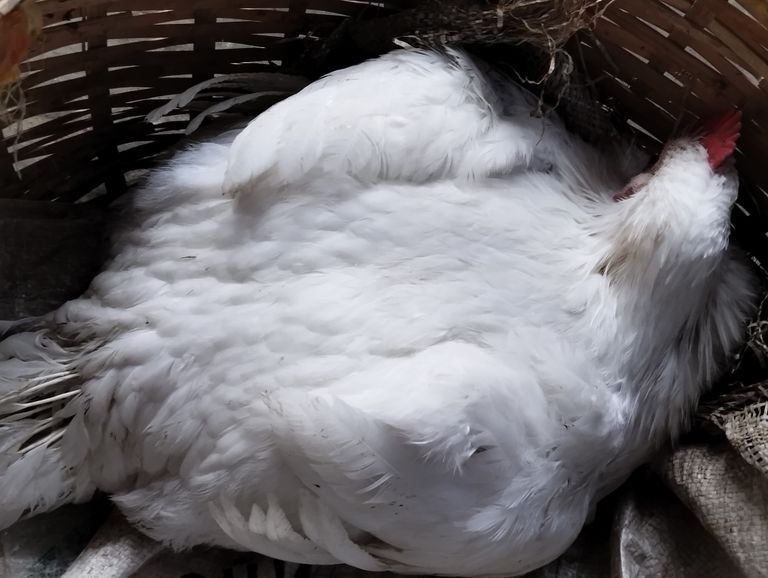
Here’s a 4000-word blog about broiler chicken feed, covering all essential aspects:
Understanding Broiler Chicken Feed: A Comprehensive Guide
Broiler chickens are specifically bred for meat production, requiring a carefully balanced diet to achieve optimal growth, health, and efficiency. Feeding broilers with the right type of feed at the appropriate stages of their lifecycle is crucial for achieving the best results. In this guide, we’ll explore everything you need to know about broiler chicken feed, from nutritional requirements to feeding schedules and the types of feed available.
Why Proper Nutrition Matters
Broiler chickens grow rapidly and reach market weight in just 5–8 weeks. To support this growth, their feed must provide sufficient energy, protein, vitamins, and minerals. Poor-quality feed can lead to:
Slow growth: Inadequate protein and energy intake delays weight gain.
Health issues: Deficiencies in vitamins or minerals can cause diseases or poor immunity.
Economic loss: Suboptimal feed leads to higher production costs and lower profits.
Key Nutritional Requirements for Broilers
- Energy:
Broilers require energy to grow, maintain body functions, and perform basic activities. Energy is primarily sourced from carbohydrates and fats in the feed.
- Protein:
Protein, particularly amino acids like lysine and methionine, is essential for muscle development. Broiler feed typically contains 18-23% protein, depending on the bird’s age.
- Vitamins and Minerals:
Vitamins such as A, D, E, and B-complex are vital for overall health, while minerals like calcium, phosphorus, and sodium contribute to bone development and metabolic functions.
- Fats:
Fats provide concentrated energy and aid in the absorption of fat-soluble vitamins.
- Fiber:
Though required in minimal amounts, fiber aids in digestion. Excess fiber, however, can reduce feed efficiency.
- Water:
Clean and fresh water is just as important as feed. Broilers require access to water at all times to stay hydrated and support digestion.
Types of Broiler Feed
Broiler feed is typically classified into three stages, each formulated to meet the nutritional needs of the bird during that specific phase:
- Starter Feed (0–2 Weeks):
High in protein (20-23%) and energy.
Promotes early growth and immunity development.
Feed is often in crumbled form for easy consumption by chicks.
- Grower Feed (3–4 Weeks):
Moderate protein (18-20%) and energy levels.
Supports steady growth and weight gain.
- Finisher Feed (5 Weeks and Above):
Lower protein content (16-18%) with high energy.
Focuses on fat deposition and meat quality.
Feed Ingredients
The composition of broiler feed varies depending on availability, cost, and nutritional goals. Common ingredients include:
- Cereals:
Corn, wheat, and sorghum are primary energy sources.
Corn is preferred due to its high digestibility and energy content.
- Protein Sources:
Soybean meal, fish meal, and meat-and-bone meal provide essential amino acids.
Alternatives like sunflower meal and groundnut cake are also used.
- Fats and Oils:
Animal fats, vegetable oils, and palm oil increase the energy density of the feed.
- Supplements:
Vitamins and Minerals: Premixes ensure the birds get adequate micronutrients.
Enzymes: Enhance nutrient absorption.
Probiotics and Prebiotics: Promote gut health and improve immunity.
- Additives:
Growth promoters, coccidiostats, and antioxidants are added to enhance performance and prevent diseases.
Formulating Broiler Feed
Feed formulation is a science that balances the nutritional needs of the birds with cost-effectiveness. Modern feed formulation often uses software to calculate the optimal mix of ingredients. Key considerations include:
Cost of ingredients
Nutritional profile of ingredients
Digestibility
Bird’s growth stage
A well-formulated feed ensures minimal waste and maximum growth efficiency.
Feeding Schedule
Broilers should be fed according to their age and weight. Here’s a general feeding schedule:
The feed should be provided in feeders that are regularly cleaned to avoid contamination. Uneaten feed should be removed daily.
Tips for Optimizing Feed Efficiency
- Use Quality Feed:
Always source feed from reputable manufacturers to ensure consistency and quality.
- Proper Storage:
Store feed in a cool, dry place to prevent spoilage and contamination.
- Adjust Feeders:
Ensure feeders are at the right height to prevent wastage. Birds should not be able to scatter feed.
- Monitor Growth:
Regularly weigh birds to track their growth and adjust feed accordingly.
- Provide Clean Water:
Dehydration can reduce feed intake and growth.
- Minimize Stress:
Stress due to overcrowding, heat, or poor ventilation can reduce feed efficiency. Maintain a comfortable environment for the birds.
Homemade Feed vs. Commercial Feed
Some farmers prefer to prepare their own feed to reduce costs, while others rely on commercial feed for convenience and consistency. Here’s a comparison:
Challenges in Broiler Feeding
- Rising Feed Costs:
Fluctuations in raw material prices can impact profitability.
- Feed Contamination:
Molds, bacteria, and toxins in feed can harm broilers. Regular testing is crucial.
- Overfeeding or Underfeeding:
Improper feeding schedules can lead to obesity or malnutrition.
- Environmental Factors:
High temperatures can reduce feed intake, affecting growth.
Future Trends in Broiler Feed
The poultry industry is continuously evolving, with innovations aimed at improving feed efficiency and sustainability. Emerging trends include:
Use of Insect Protein: Black soldier fly larvae and other insects are gaining popularity as alternative protein sources.
Precision Feeding: Technology-driven systems that tailor feed to individual birds.
Natural Additives: Herbs, spices, and essential oils are being explored as growth promoters and health boosters.
Sustainable Ingredients: Increased focus on using by-products and locally available resources.
Feeding broiler chickens is both a science and an art. By understanding their nutritional needs and providing high-quality feed at the right stages, farmers can maximize growth, improve health, and increase profitability. Whether you opt for commercial feed or a homemade mix, consistent monitoring and good management practices are key to success in broiler farming.